Four years ago on May 9, 2018, Malaysia experienced a landmark moment as Umno’s 61-year rule came crashing down. The victorious coalition was helmed by veteran premier Dr Mahathir Mohamad but its largest party was PKR, a multi-racial political outfit with social justice at its core.
With PKR president Anwar Ibrahim poised to take over as prime minister, the future was bright for the party of reformists. However, things did not go down as planned.
Fast forward to today, the party has seen a series of outright betrayals and bitter disappointments. There was an implosion in PKR and as if the defections of more than a dozen MPs since the Sheraton Move was not painful enough, voters in recent state polls have also deserted the party.
PKR only picked up two seats in the Sabah election before coming up empty-handed in Sarawak and Malacca. In last month’s Johor polls, it only won a solitary seat.
Furthermore, a number of divisive party polls in the past contributed to the catastrophic Sheraton Move split, so there is a legitimate concern that the next party election due in a matter of weeks could finish the party off if there is another round of bruising.
It is against this backdrop that a new generation of PKR leaders will try to pick up the pieces and rebuild the party.
Injection of youth
In the recent Johor election, 30 percent of youth or six youth candidates were proposed to be fielded by PKR, however, only four youth candidates were introduced.
Interestingly though, the one seat won in the election, out of the 20 PKR had contested, was secured by a youth candidate.
Johor PKR Youth chief R Yuneswaran said that while six candidates was a “reasonable allocation”, strategy and winnable candidates should prevail over their age.
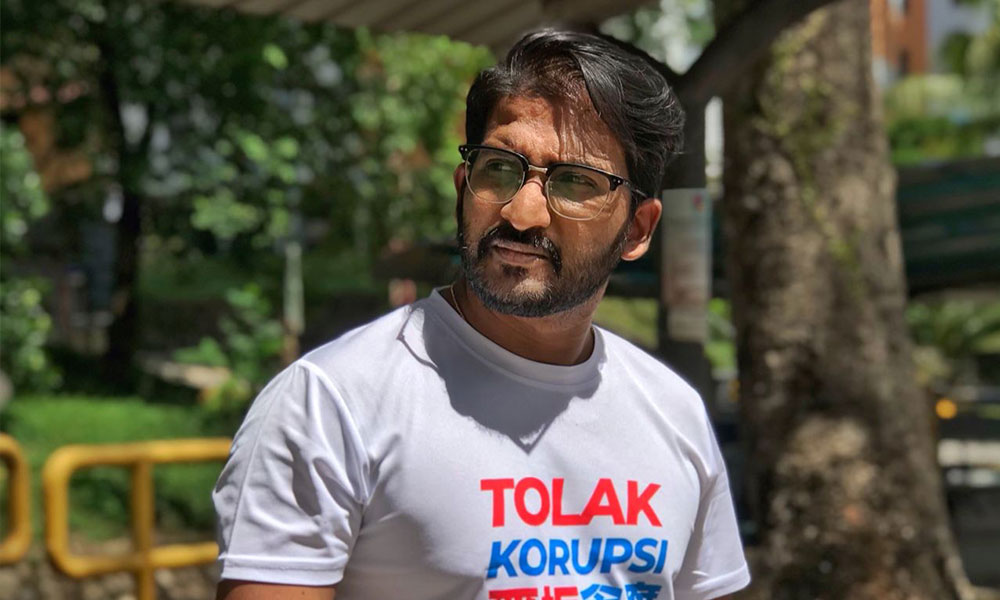
“Furthermore, among the 20 seats that PKR contested only a few were suitable seats for young candidates due to the voter demographics,” he told Malaysiakini.
This was supported by PKR Youth Young Professionals Bureau chairperson Jhen Pei Seah and PKR Women’s communications director Loh Ker Chean.
“I think 30 percent is a healthy ratio to ensure youth representation in Johor polls. Such a proposal is also made to ensure PKR is able to provide a platform to groom more young and bright politicians.
“However my personal opinion is that age shouldn’t be an endorsement of quality for candidates, in other words, it does not mean that if one is young, he or she must be a better candidate,” said Jhen.
On the other hand, lawyer and PKR member Asheeq Ali Sethi Alivi believes that while 30 percent of youth candidates is a good start, it should increase to at least 40 percent in the 15th general election (GE15).
“To me, what is ideal is that there should be no limit to the number of youth candidacy. The deciding factor should be the idealism and the conviction to reform, not the age. I believe we will achieve that one day,” he said.
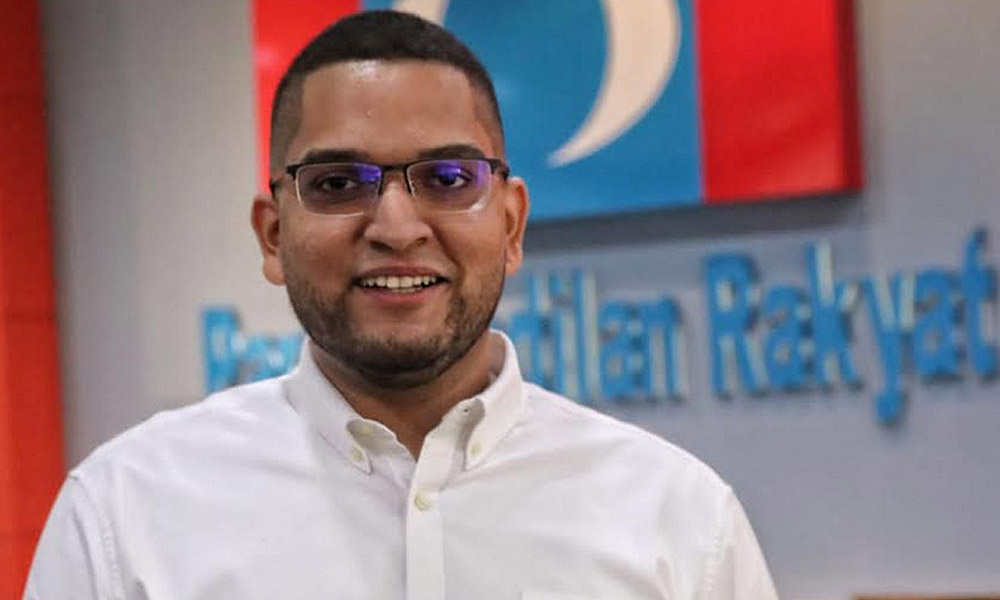
Yuneswaran, Jhen, Asheeq and Loh all come from different backgrounds but have one thing in common - they want to be and see a change in society.
They are the next generation of PKR leaders.
In an exclusive interview with Malaysiakini, Yuneswaran, Jhen, Asheeq and Loh alongside Mohammad Syamil Luthfi, Nabil Halimi, Wan Zulaika Abd Kahar, Farzana Hayani Mohd Nasir and Anetha Pillai introduce themselves and share their political journey so far.
What is your background?
Loh: I grew up in Petaling Jaya and majored in Electronics Engineering at Multimedia University. I previously served in the deputy minister’s office when Pakatan Harapan was the government from 2018 to 2020.
If you asked me 20 years ago whether I would delve into politics, I would have answered “no”, but after spending some time outside of Malaysia, I felt compelled to play (my) part for our country by organising solidarity gatherings in the city I lived in.
I realised that community activism continued to grow in me even when the country and people settings changed. Things became clear and I noticed where my passions and energy should be channelled. And now here I am with PKR.
Syamil: I am from Kedah and now reading law at UiTM Shah Alam. I am in politics because I love this country and I have a huge dream to see Malaysia as a prosperous country.
I used (to) read a lot during my school days, analysing the issues that were happening in our country. So, I wanted to be an agent of change. Hence, I am the chairperson of PKR’s student wing.
Farzana: I am a 21-year-old UiTM undergraduate and have a diploma in Communication and Media Studies. I was previously appointed as Malacca PKR Women chief and was responsible for various welfare programmes, including back-to-school events for orphans.
I was also fielded by PKR as Harapan’s candidate in Sungai Rambai during the 2021 Malacca polls.
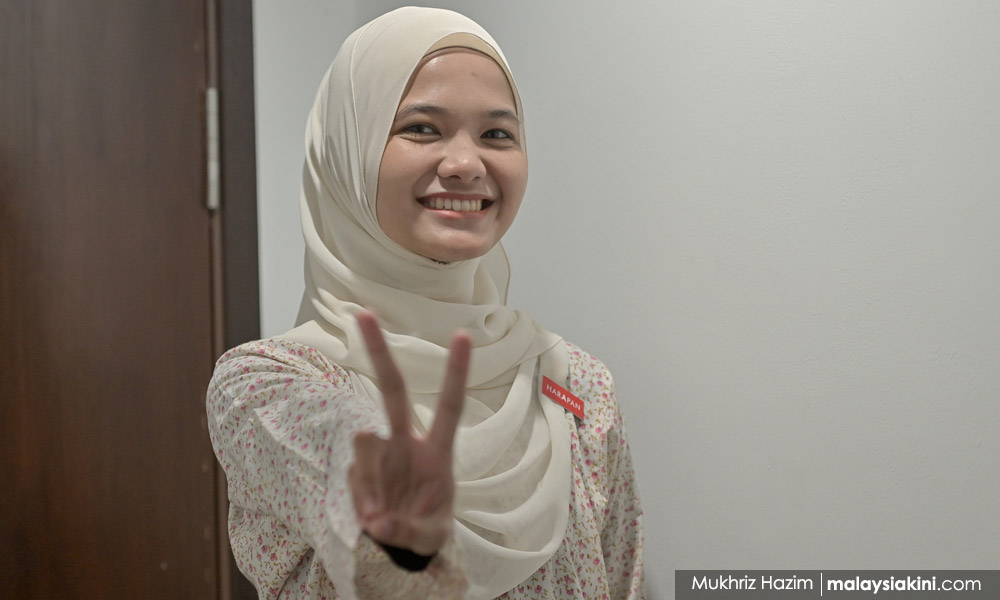
Wan Zulaika: I am 30 years old and have a background in finance and investment. I chose politics to educate the younger generation about it and reform the system for a better nation. I am the chief of Negeri Sembilan PKR Women.
Yuneswaran: I was born in Perak, grew up and went to school in Selangor before residing in Johor for 20 years. I serve as the PKR Youth chief of Johor and Tebrau. I have a degree in political science and a Masters in Business Administration (MBA).
I am here because I was a victim of an unconstitutional law. I was the first person charged under (the) Peaceful Assembly Act 2012. I was fined, imprisoned and disqualified by the court to hold any public office because I stood for our rights.
Jhen: I worked in Singapore for five years as a geotechnical engineer right after graduation in the United Kingdom, where I studied Mechanical Engineering.
I used to be surrounded (by) Malaysians who seriously thought that the country was hopeless. After a while, I came to realise that Malaysia is only hopeless if we give up on it. So, upon returning to Malaysia in 2016, I joined PKR because I wished to be part of the force to make the country a better home.
Nabil: I hold a Bachelor's Degree in Civil Engineering from Cardiff University and I am pursuing an MBA with Putra Business School.
As a 26-year-old, I believe it is my responsibility as a Malaysian to play a role in building a better nation through politics. I was raised by a civil servant, who always pushed me forward to help the ones in need and contribute to the nation, this led me to become a PKR member.

Anetha: I am the Federal Territory PKR Women chief. I was born and raised in Ipoh and am 34 years old.
Since I was a child I always wanted to be an inspiring personality but only recently have I found that politics can be the best way to carry myself and the qualities I am looking for.
Asheeq: I was previously a lawyer with Karpal Singh & Company. I now own a legal firm of my own, Messrs Asheeq Ali & Co, while being a PKR member. I joined politics because I was fed up with all the injustices and corruption that has been happening in this country.
I want to fight for my fellow Malaysians to enjoy a life with dignity and unity. Politics always seemed dirty to me in the past. I never wanted to be a part of it as I always had the mindset that “if I join them, I will be like them” until I came to a realisation that I can't run away from it. Only through active political participation can I start the change that I want to see.
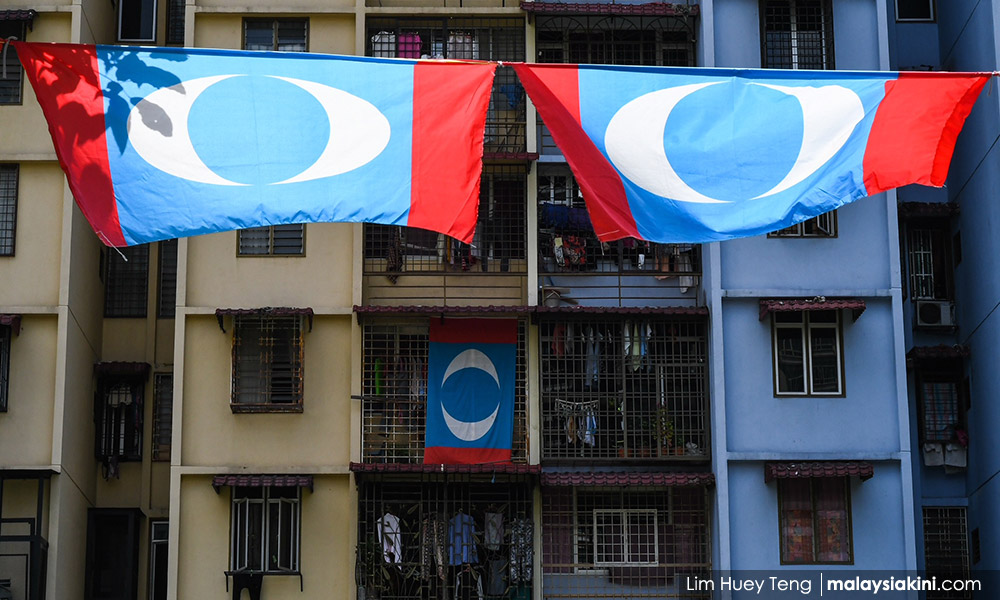
What drew you to PKR as opposed to other parties?
Yuneswaran: I started my activism with PKR in 2008. I find it to be the only party in Malaysia consisting of all ethnicities, and the biggest multiracial party that carries the aspiration of being a true Malaysian.
Loh: One word - reform. I joined PKR when I was a university student. I spent five years in South Australia and I saw how the livelihood of people living under the care of the Australian government, especially the elderly people. Most importantly, I had first-hand experience with how the Australian government approached and reduced the burden of the ‘sandwich generation’ - the generation that takes care of their parents and their children at the same time.
I believe we can do the same thing here and that we actually can do it better because we only need to build it on top of our existing culture and values of filial piety across different ethnic communities.
Politics is the conduit for me to spread more awareness about professionalism in social work, the needs of the social and health care support system, new laws and policies to protect vulnerable elderly people and eventually change society.
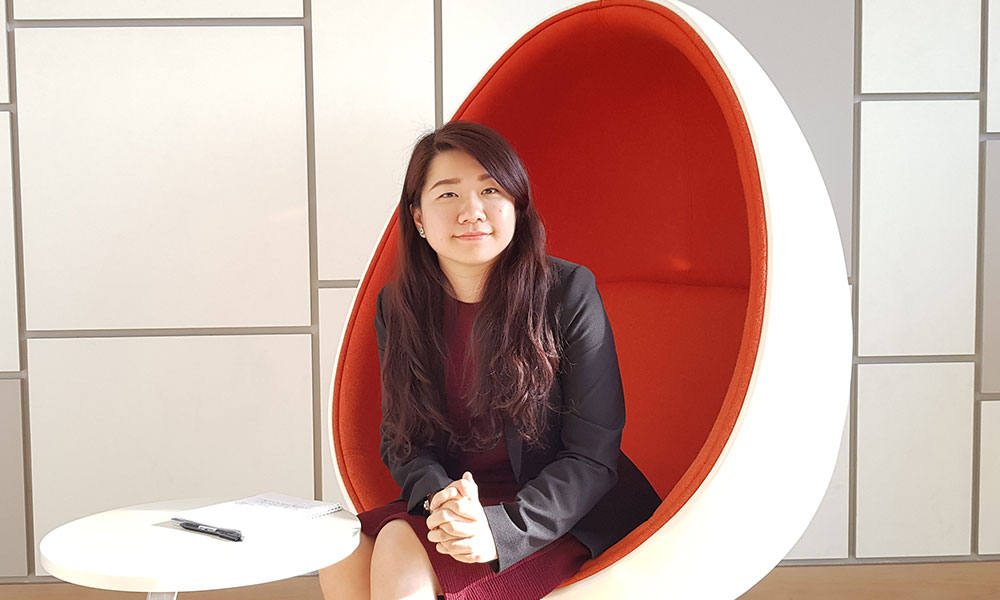
Moreover, our ageing policies in Malaysia should by now be heading in the direction of developing the professional “home care services” industry after the tragedy in a nursing home during the Covid-19 pandemic.
The death rate of the elderly in nursing homes at one point was 1.48 percent compared to the national death rate of 0.38 percent. If I am able to do this in Malaysia, it would be a reformation of the system, and PKR’s war cry has always been about reforming.
Jhen: Having grown up in a mixed society, I always think diversity is the key to bringing Malaysia forward. Not only is PKR multiracial but it has also demonstrated rich diversity in terms of gender, age, profession and social background. It is the party that reflects Malaysia the best.
Wan Zulaika: My family has been PKR activists since 1998, and I grew up learning and witnessing the struggle of the people. After the change in the Selangor government in 2008, I witnessed how PKR really changed and rebuilt the state and made it much better.
As a working corporate player, I understand why our country really needs a better breakthrough.
Farzana: I was introduced to not just politics, but to PKR, by my parents who have been involved in politics for many years. I followed and helped them serve the people for a long time.
Although over the years I have observed other political parties, my passion and beliefs are always with PKR, because of its ideas toward social reforms and social diversity.
Anetha: PKR is one of the parties that consist of all races which ties to our country’s representation. Being in politics, following the right principles and policies are my priorities. Hence PKR has always been focused to form a society with unity and a progressive democratic country which matched my vision when I submerged myself in politics.
Asheeq: The reform agenda was very close to my heart ever since I started my activism work back in my university days. What drew me was PKR’s commitment to the reform agenda, its multi-racial platform and Anwar's conviction to keep fighting for change despite having multiple obstacles since 1998.
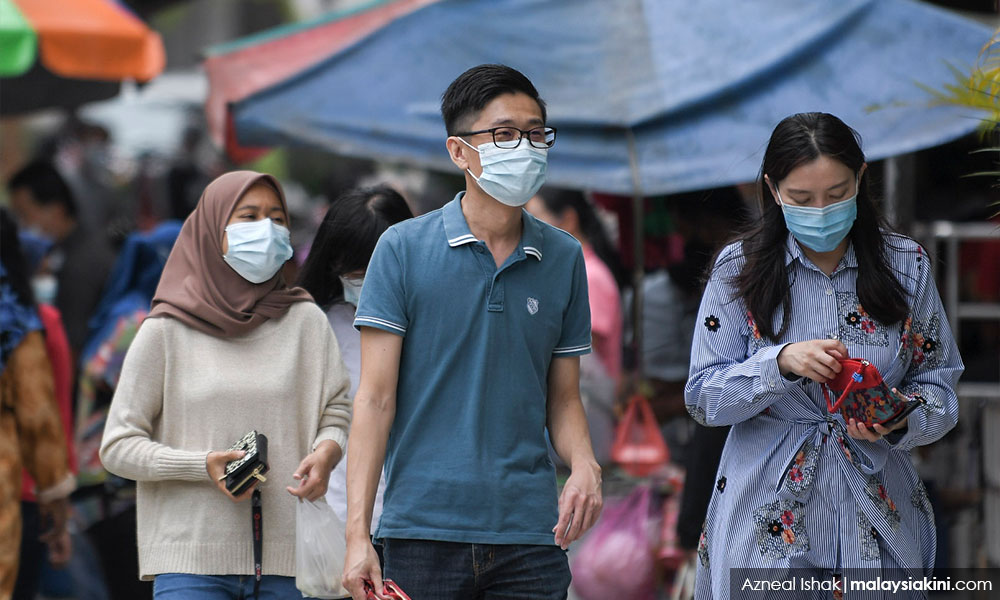
How do you find younger people approaching race politics and why do you think it's accepted among the older generation?
Jhen: I think Malaysians are progressively shifting away from race politics and this is proven by the recent increase of new multi-racial parties being established.
Some politicians used to resort to race-based politics because it is the most straightforward way of gathering support from a defined pool of voters. This is how race-based policies took roots in Malaysia.
However, as more and more race-based policies fail to achieve their objectives, of which very often they only benefit a very minority group of cronies, I think this is how the youth started to realise race politics is flawed and not doing any good for our country.
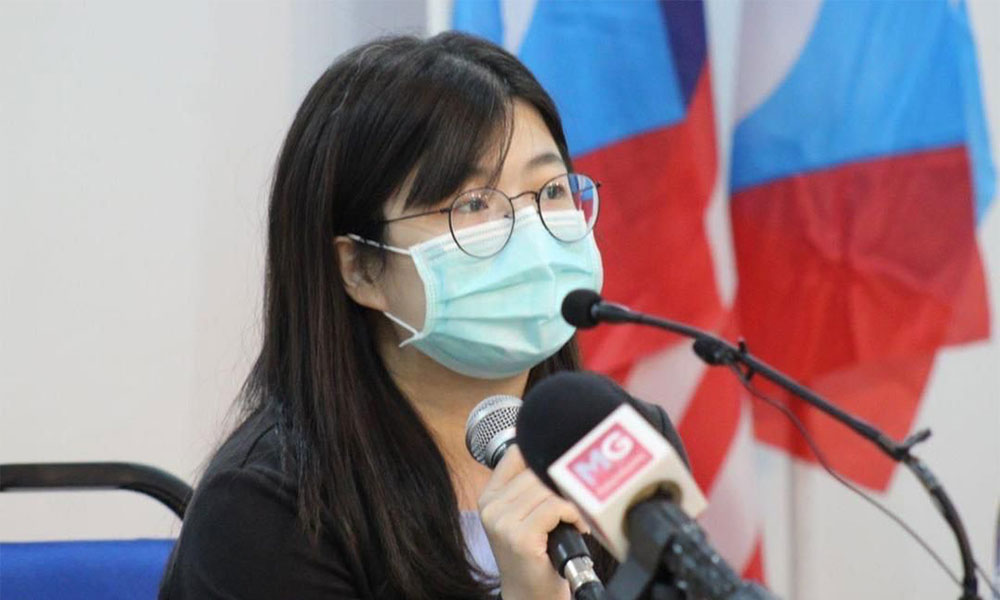
So, I think it’s time to leave race-based politics behind, it’s time to adopt a more needs-based approach to our politics and policymaking.
Loh: I believe younger people with lesser exposure in life, especially before stepping into a working environment or the bigger society, would have a higher chance of falling into the racism trap and be easily influenced by racist comments from media influencers such as politicians.
In other words, I believe one’s social experiences and exposures are important factors in whether one consumes or rejects race-based politics.
I do not actually agree that race-based politics or identity politics is necessarily accepted among the older generation. Anyone could be racist based on their anecdotal personal experience and get involved with race-based politics.
Farzana: To me, after GE14, race politics has not been an issue for the people anymore. Malaysians are looking forward to a better, stable, progressive government to lead our country, and I strongly believe that our people deserve a better government.
Asheeq: Many of the younger generations are no longer interested in race politics. We have given enough time for race-based parties like Umno to rule this country and we have seen enough destruction by Umno. That alone is sufficient for me to say that it is time that we end racial politics as it has only caused harm to this country.
More often than not, the older generation is afraid to do away with race-based parties like Umno as they have been made to believe that only Umno can offer stability in this country given the fact that Umno has ruled for more than 60 years.
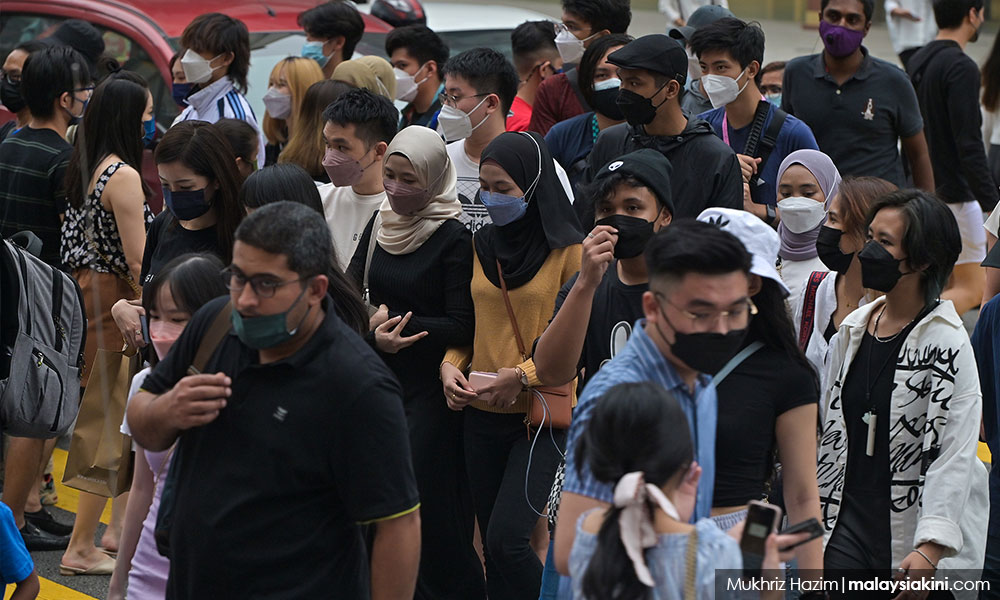
How does PKR Youth engage with youths on political education, encourage participation?
Loh: According to a survey by Merdeka Centre early last year with a sample of 2,520 youths aged 18 to 30, more than two-thirds of youths have no interest in participating in politics. That’s why the toughest part of youth engagement is to create interest rather than introduce political education to them.
The lowest aim for youth to participate in politics is to enable them to vote in every election, yet, this is the most difficult task. PKR at the division levels organises community interest-based programmes like futsal, online gaming competitions, sepak takraw, parenting classes and art classes to engage with non–partisan youth.
There, we provide some encouragement and guidance on whether they would love to know more and commit further to the ideas and values of PKR. We have regular programmes like introductory workshops in initiating new members into PKR.
Yuneswaran: We constantly conduct internal political leadership training and discussions to enhance and focus on empowering the PKR Student wing to engage with college and university students.
We also focus on forums and debate sessions to encourage more youth participation and engagement in current affairs and issues.
Nabil: I believe the formation of the PKR Student wing offers a platform for youths who are seeking to learn political service and the basics of volunteerism in politics which need to be instilled in future leaders. These fundamentals are important to offer a more progressive approach to encourage the youth to be in politics.
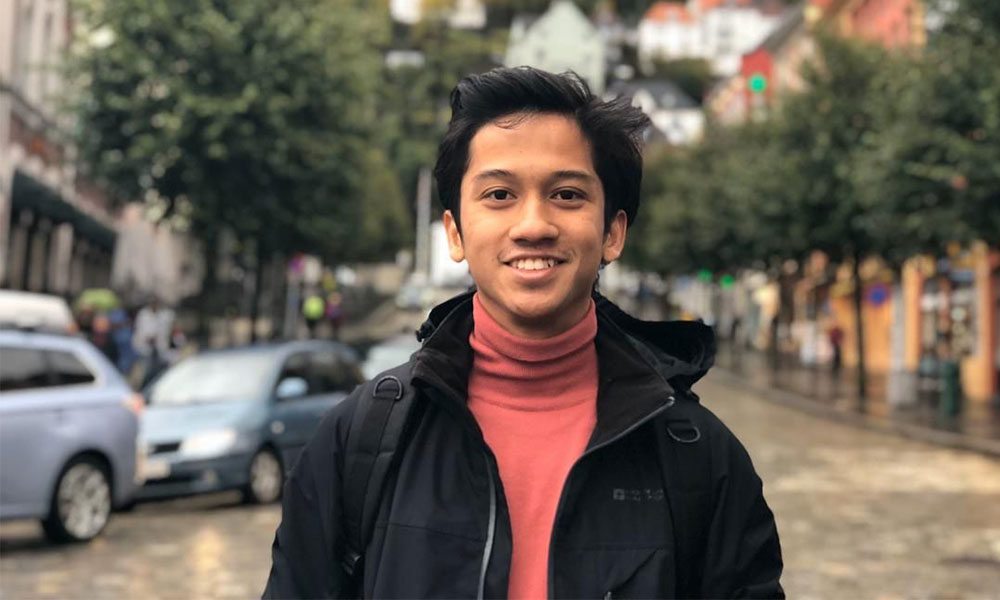
The trend right now is that they (the youth) are afraid. Therefore, what the party offers needs to be within the wavelength and demands that the new generation is seeking.
Asheeq: For example, PKR formed the Diwan Reformasi training programme under the purview of Anwar, and we also have the ‘Kenali Keadilan’ training programme under PKR Youth.
Jhen: Other than strengthening our grassroots to be more inclusive for youths, PKR Youth has also established several bureaus as part of our youth engagement efforts.
These bureaus were built as a platform to engage youths from a spectrum of backgrounds, ie students, professionals, legal professionals, activists etc.
I am leading the Young Professional Bureau, where we are actively engaging youths from different industries to listen to their voices and act as the bridge between policymakers and young professionals.
This is part 1 of a three-part series of PKR Youth leaders. - Mkini




No comments:
Post a Comment
Note: Only a member of this blog may post a comment.